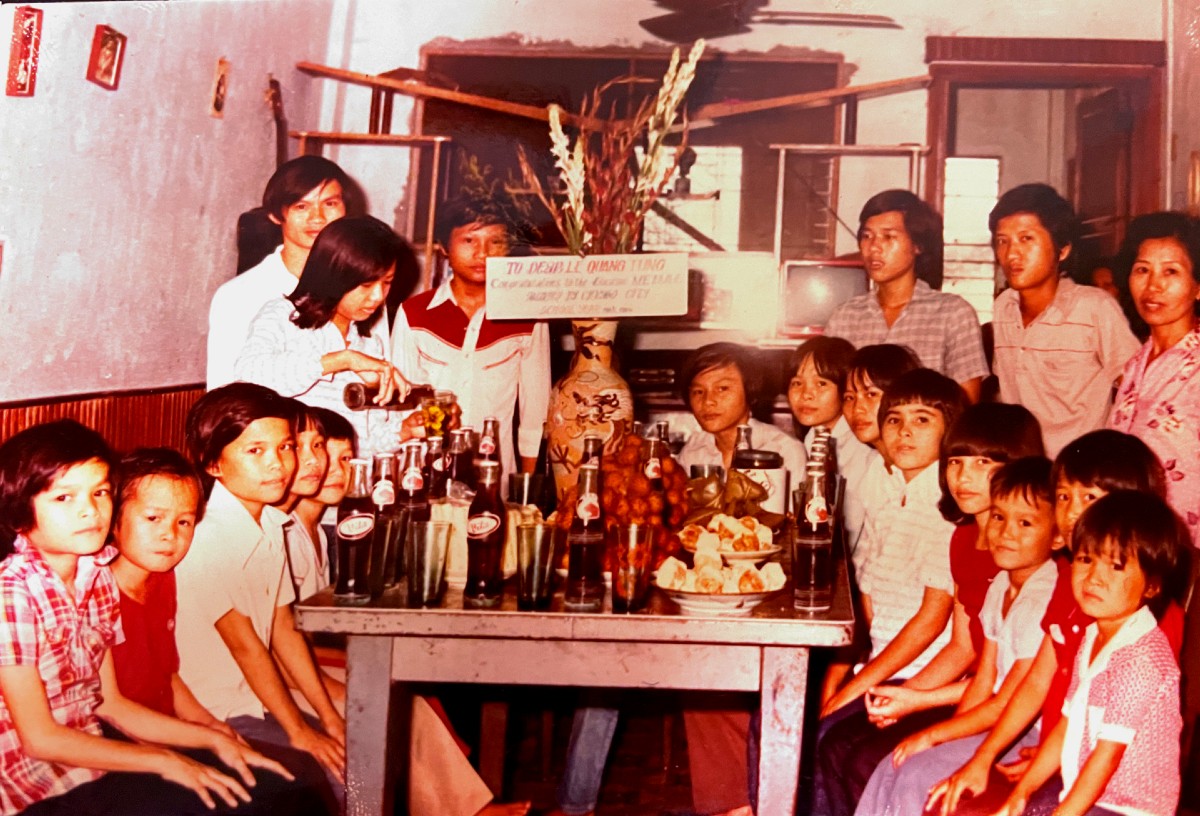(Editor’s note: Gwinnett is home to people from around the world. This journey of freedom is from a successful businessman who immigrated from Vietnam. It is a compelling story, and it’s longer than normal. That’s why we’re going to present it partially today, and then print the second part in the next issue. It’s a thrilling and inspiring story about some of our new neighbors. The author is a businessman with offices in Duluth and Peachtree Corners.–eeb)
By Tim Le
PEACHTREE CORNERS, Ga. | After the fall of Saigon, more than one million Vietnamese Boat People gave up their livelihood and dignity to seek democracy and freedom. About 700,000 Vietnamese refugees successfully resettled in the USA between 1975 and 1997.
My family was part of this massive exodus to escape communist Vietnam. My own journey started in March 1981 from Rach Gia, Vietnam. My father had arrived there a few months earlier and bought a house on the river to blend in with the locals. My sister and I joined my father in the spring of 1981 as other members of our family slowly gathered.
My mother was at home in Dong Nai with my two sisters. Our family couldn’t risk escaping all at once. We had to have either my Mom or Dad on each trip to ensure that the remaining parent would take care of us if something went wrong.
We collaborated with a local fisherman’s family to plan our escape. My father offered to purchase a boat for them and have them navigate and fish the Mekong River delta for three months before our escape. The boat’s shell was overhauled and waterproofed with tar a few days before the trip. Eyes were painted at the front of the boat in a similar style of Thai’s fishing boats.
As kids, we didn’t know what was going on (I was nine years old at the time) and thought that it was a vacation. It was the first time that my sister and I enjoyed a carefree vacation. I cannot imagine the stress and nervousness that my father and elders were feeling as they made preparation for this life-changing journey. They were coordinating with the local water taxis, and paying off bridge guards.
One early morning in March, 1981, the journey started with a 4 a.m. water taxi ride to the main boat. We passed guarded bridges and traveled approximately one hour in open water to reach a 19-meter fishing vessel.
I still remember the glow of the water in the moonlit night as the water taxi cut through it. We hid underneath blankets and saw the star-filled night sky. There were 29 of us passengers, with 15 passengers being our family members. I didn’t know what was going on , so I did not feel afraid. I believe my parents bore all of the fears for us. They stayed back because they had other plans to escape with my two sisters at a future time. We didn’t want to have all of our eggs in one basket, in a survival sense.
That morning we enjoyed a moment of peace and tranquility until it was abruptly interrupted by the Vietnam Coast Guard. They spotted us as we were navigating through some of the smaller coastal islands. The three-hour pursuit into international water was tense with many silent prayers. We had both engines roaring full throttled, a Yarma F10 inboard and a Bridgestone 16 outboard. The Bridgestone 16 overheated and was dumped into the ocean at the end of the pursuit. Our first goal was to get to the coast of Thailand, about 800 kilometers across the Gulf of Thailand.
During the three -day trip to Songkhla, Thailand, we were boarded twice by pirates. They were local fishermen looking for opportunities during a turbulent time. The first boarding stripped us of any valuable possessions that we had.
The second boarding was most frightening. We did not have any more valuables for the pirates to take. The women and children were removed from our fishing vessel to the pirate’s ship and searched. They were then allowed back onto our vessel after the search. Then men and boys had to board the pirate’s boats. We were lucky to be allowed back onto our boat after they thoroughly searched us.
We heard of many cases from other refugees that were not as fortunate. Other pirates would separate the women and children, and might sell them for labor. In some cases, the pirates would sink the fishing vessel and throw the men overboard to drown.
Next the pirates tied our boat to the back of theirs and towed us a good distance. Each time a high wave would come, we would slam into the back of their boat. Our boat encountered huge damages and our guys had to work to repair it. Eventually, they cut the line and left us adrift.
(To be continued in the next edition, on August 2)
- Have a comment? Send to: elliott@brack.net











Follow Us